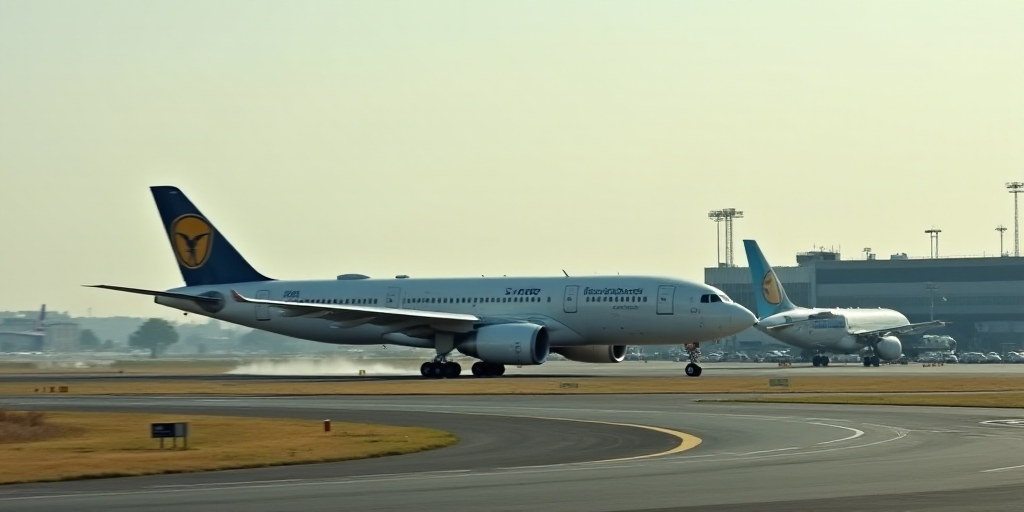Background and Relevance of the Aviation Industry Leaders
The US aviation industry, grappling with the trade war initiated by President Donald Trump and a decline in travel demand, is urging the White House to exempt it from tariffs. Industry executives have held meetings with high-ranking Trump administration officials, including the President, to reinstate the tariff-free regime under the 1979 Civil Aviation Agreement. This agreement previously granted the sector an annual trade surplus of $75 billion, which tariffs have now eroded.
Key Players and Their Concerns
Devon May, Chief Financial Officer of American Airlines, stated that the government affairs team is working diligently to argue for an exemption. The aviation sector anticipates that such an exemption will help companies maintain low costs amidst a significant drop in consumer travel spending, driven by economic growth concerns and rising inflation.
Industry’s Response to Tariffs
Airlines have reduced flights in response to dwindling reservations and have abandoned financial forecasts while attempting to control costs to safeguard margins. They also oppose rising prices for aircraft and spare parts, as manufacturers attempt to pass on tariff costs.
- Airline Executives: They have even considered returning leased aircraft and postponing deliveries, as May explained, “It simply doesn’t make economic sense to pay an additional 10% or more for those planes, which are our largest capital expense.”
- Aircraft and Jet Engine Providers: Executives have assured shareholders that their companies won’t absorb tariff costs, increasing the risk of conflict with airline clients.
Tariff Impact on Major Companies
Boeing expects an annual tariff impact of less than $500 million, while GE Aerospace estimates its tariff bill to exceed $500 million. RTX anticipates annual additional costs of $850 million.
All three companies have cost mitigation strategies, including price increases and a diverse order portfolio.
Larry Culp, GE Aerospace’s CEO, warned airlines against delaying deliveries, stating, “Many others will queue up and take their place.”
Uncertain Travel Demand
An airline executive mentioned that companies might have taken tariffs in stride if travel demand were robust. However, reservations have dropped over the past two months, weakening their pricing power.
- Airfare Trends: US Department of Labor data shows that airfares experienced their largest intermonth decline since September 2021, with airlines lowering fares to stimulate demand.
- Alaska Airlines CFO Shane Tackett: He told Reuters that most reservations come with lower fares. “We believe all airlines are facing this issue,” he said.
Industry’s Unique Position
Aerospace industry officials argue that their situation differs from other industries, as they export over $135 billion in products annually. Most of their manufacturing base and employees are based in the US, they claim.
Culp recently met with Trump to explain how the industry’s tariff-free status for decades helped achieve the highest trade surplus of any sector. He stated that the administration understood their position but added, “It’s not the only factor they’re addressing.”
Key Questions and Answers
- What is the aviation industry’s primary concern regarding tariffs? The industry fears that tariffs will increase aircraft and spare parts costs, which would negatively impact their bottom line.
- How have airlines responded to the decline in travel demand? Airlines have reduced flights, abandoned financial forecasts, and attempted to control costs to protect margins.
- What are the tariff implications for major aviation companies? Boeing expects an annual impact of less than $500 million, while GE Aerospace estimates its tariff bill to exceed $500 million. RTX anticipates annual additional costs of $850 million.
- Why is the aviation industry seeking exemptions from tariffs? The industry aims to maintain low costs amidst a significant drop in consumer travel spending due to economic growth concerns and rising inflation.






